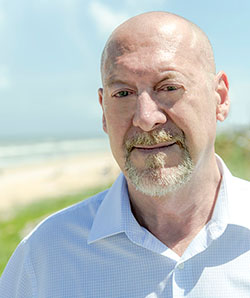
How Does A Reverse Mortgage Work?
What is a reverse mortgage?
A reverse mortgage is a loan which is only available to homeowners age 62 or older. It allows the borrower to utilize their home’s equity as collateral to receive a sum of money with no monthly payment.
What is a HECM?
The Home Equity Conversion Mortgage has been the standard in reverse mortgages for 30 years. It is a government-insured home equity loan developed exclusively for seniors and signed into law in 1988. This loan product is insured by the Federal Housing Administration (FHA), providing you with the same protection as any Federally-backed loan.
Who is eligible for a reverse mortgage?
To be eligible for a HECM, the FHA requires that one of the borrowers be at least age 62. Additionally, the home must either be owned free and clear, or all existing liens, including any existing mortgage balance, must be paid off completely with the loan at closing. Since a HECM is based on the equity in your home, there are no credit score requirements.
What are the loan limits?
The amount depends on four factors: age (older is better), value of the home, current interest rate, and any government-imposed lending limits. If you are interested in finding out how much you qualify for, this is covered in our no obligation, pre-application consultation. Our consultation can be in person or over the phone, whichever you prefer.
How are the proceeds distributed?
There are several ways to receive the proceeds from a reverse mortgage.
- Lump sum – a lump sum of cash at closing. This is the method typically used to pay off existing liens to provide you with a greater cash flow.
- Tenure – equal monthly payments as long as the homeowner lives in the home.
- Term – equal monthly payments for a fixed number of years.
- Line of Credit – draw any amount at any time until the line of credit is exhausted.
- Any combination of the options listed above.
Do you have to repay the money?
The loan generally does not have to be repaid until the last surviving homeowner permanently moves out of the property or passes away. At that time, the estate or heirs have up to 12 months (three months at a time) to repay the balance of the reverse mortgage or sell the home to re-pay the mortgage. Any remaining equity is inherited by the estate.
Can you outlive your HECM?
Generally speaking, the answer is NO! A reverse mortgage loan cannot be outlived and will not become due, as long as at least one of the borrowers lives in the home and uses it as their primary residence. The primary resident must also continue to pay property taxes and homeowners insurance, and maintain the home in compliance with FHA requirements.
What if the home loses value?
In some circumstances, the home may lose value and when sold may not generate enough income to repay the total loan balance. Fortunately, the HECM is a non-recourse loan, meaning that the estate is not personally liable if the home sells for less than the balance of the reverse mortgage. The lender must take the loss and try to get reimbursement from the FHA. No other assets are affected by a HECM, so any investments, second homes, cars, or other valuable possessions cannot be taken from the estate to pay off the balance.
How much do I qualify for?
We can help answer this question very easily. One of our Palm Coast-based reverse mortgage specialists will contact you to gather some very basic information, and then set up a follow up meeting in person or over the phone to give you the details. If you think a reverse mortgage might help you live the retirement of your dreams, please call us at (813) 394-9042 or fill out the contact form at the top of this page.

Carl N. Jensen
Residential Mortgage
Loan Originator
NMLS #1181707